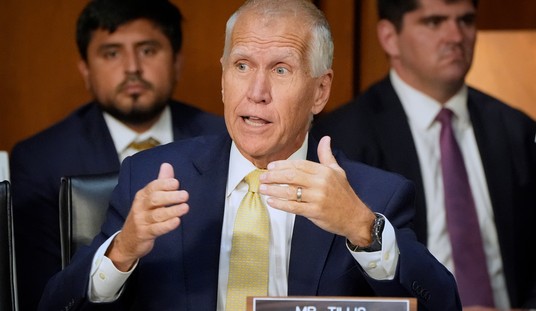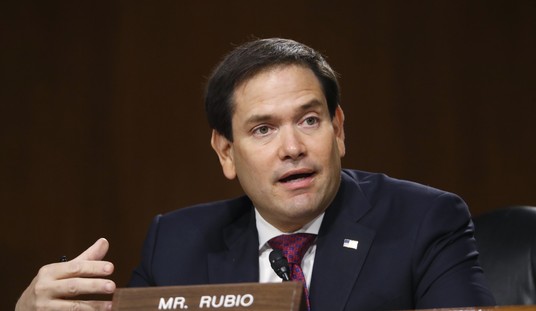Several important events in human spaceflight occurred in 1961. The first man and first American were shot into space fifty years ago this spring — but the most important anniversary is May 25th. Half a century ago today, President John F. Kennedy gave a speech before Congress in which he famously announced that the nation should, “before the decade was out,” accomplish the goal of “landing a man on the moon and returning him safely to the earth.” Thus was the Apollo program born — and thus, many believe, we began to get serious about space.
But they are mistaken. That day was actually the beginning of a long national detour in space development, at least for human spaceflight. It’s one from which we are only now emerging, with the change being fought in a rear-guard effort by entrenched interests in a few key states and Washington.
There are a lot of myths about Apollo and human spaceflight, starting with the speech itself. Many believe that the moon announcement was the focus of the speech, but it was actually more of a supplemental state of the union message. The space policy was just one of nine areas covered, and the last one at that. Nor was it really about opening up the frontier, as others continue to imagine. It was about winning a crucial battle in the Cold War, in a technological area that was viewed to be of high military significance. The speech was not spurred by visions of a new ocean, but by yet another defeat in the space race (Yuri Gagarin had beaten Alan Shepard into not only space but orbit a month and a half earlier), and by the ignominious failure at the Bay of Pigs a month before, which was viewed as another lost battle in the Cold War to a Soviet proxy. The moon announcement was viewed as a means of trying to regain the initiative.
Of course, as it turned out, Apollo was a spectacular success, both in terms of winning the Cold-War battle and (a secondary goal, vigorously pursued by Texan Vice President Lyndon Johnson) in creating a “Marshall Plan” for the industrialization of the American South, with new high-tech activities in Houston, northern Alabama, and central Florida, among other places.
But in terms of actually opening up the space frontier, it was nothing short of catastrophic. We have spent hundreds of billions on it over the years, to send a few hundred government employees into space, at a cost of over a billion dollars a flight. And in July, with the last flight of the Shuttle, we won’t even be able to continue to do that.
In fact, from that standpoint, the speech itself carried the seeds of destruction. The very next words after the statement of the goal quoted above were the following:
No single space project in this period will be more impressive to mankind, or more important for the long-range exploration of space; and none will be so difficult or expensive to accomplish [emphasis mine].
As a cautionary tale of what happens when a nation ceases to be visionary, many space enthusiasts note the abrupt end to seafaring undertaken by China’s Ming dynasty. With its advanced ship technology, it sailed to not just only the east coast of Africa but the west coast of America — only to retreat back to its own shores and await the European age of exploration. But as I wrote years ago, those critics draw the wrong lesson:
The fact was that Zheng He’s journeys were a failure. They sent out vast amounts of the nations’ treasure with which to impress the heathens and gain tribute and the appropriate respect (just as is the goal for the current Chinese space activities). But when trade occurred at all, the ships often came back with items that were perceived to be of less value than what had been sent out to the ports. The trade was not profitable — it was draining vital resources. The bureaucrats [who shut down the program] were right.
Their problem was that they were doing it for the wrong reason, just as reaping prestige and proving prowess are the wrong reasons to have a space program — if, that is, one expects it to be both effective and cost effective. Kennedy was even more wrong when he put it this way, in his Rice speech of a year and a half later:
We choose to go to the moon in this decade and do the other things, not because they are easy, but because they are hard, because that goal will serve to organize and measure the best of our energies and skills, because that challenge is one that we are willing to accept, one we are unwilling to postpone, and one which we intend to win, and the others, too [my emphasis].
I rebutted this logic a few years ago, too:
It would be hard to move Pikes Peak from Colorado to Florida. It would be even harder to build a life-size replica of the World Trade Center with used q-tips. Those things would also serve to “organize and measure the best of our energies and skills.” That doesn’t make them worth doing.
The combination of the decade’s-end deadline, the emphasis on prestige, and the fixation on doing it “because it was hard” (read: huge budgets) all combined to a program attitude of “waste anything but time,” creating a NASA culture of high costs that we live with to this day. Beyond that, it created a mindset for the public that this was the only way that space could be done. Ignoring the rent-seeking of those trying to preserve legacy space jobs in their states and districts (all of those jobs are why NASA programs are so expensive), much of the resistance to the needed changes in policy that have occurred over the past year and a half have, at their root, a nostalgia for Apollo, when the nation was perceived as having done great things. But as The Economist points out this week, it was doing great things in a way that was an exception to American exceptionalism:
To many Americans, neglecting human space flight this way looks like a sorry end to the glorious chapter Kennedy opened half a century ago. He set out to make America’s achievements in space an emblem of national greatness, and the project succeeded. Yet it did not escape the notice of critics even at the time that this entailed an irony. The Apollo programme, which was summoned into being in order to demonstrate the superiority of the free-market system, succeeded by mobilising vast public resources within a centralised bureaucracy under government direction. In other words, it mimicked aspects of the very command economy it was designed to repudiate.
Fortunately for our future in space, we have reached the end of the Apollo era. There are three factors that are bringing this about. First, technologies have advanced that can dramatically reduce the cost of space activities. Second, a new generation of dynamic young entrepreneurs who made their fortunes in the dot-com boom are now investing them in private spaceflight.
And, perhaps most importantly, the government is out of money, so we can no longer justify pork for no progress. Americans will demand value for value when it comes to our presence in space — with tax dollars far more likely to support an outer-space version of the Coast Guard than a bureaucratic behemoth monopolizing and narrowing our activities in orbit and beyond.
Half a century after a flawed start, forces are now converging to bring us a real American space program, not just for a few astronaut national heroes, but for the rest of us as well, with competition driving down costs and improving service just as it does in other aspects of American life. We should honor the people who got us to the moon and defeated the Soviets, boosting morale in an existential war, but the best way to honor them is to finally get on with restoring the dream of an affordable, sustainable space-faring nation falsely promised so long ago.
Update: Also read First and last moonwalkers blast Obama space policy at the Tatler.









Join the conversation as a VIP Member